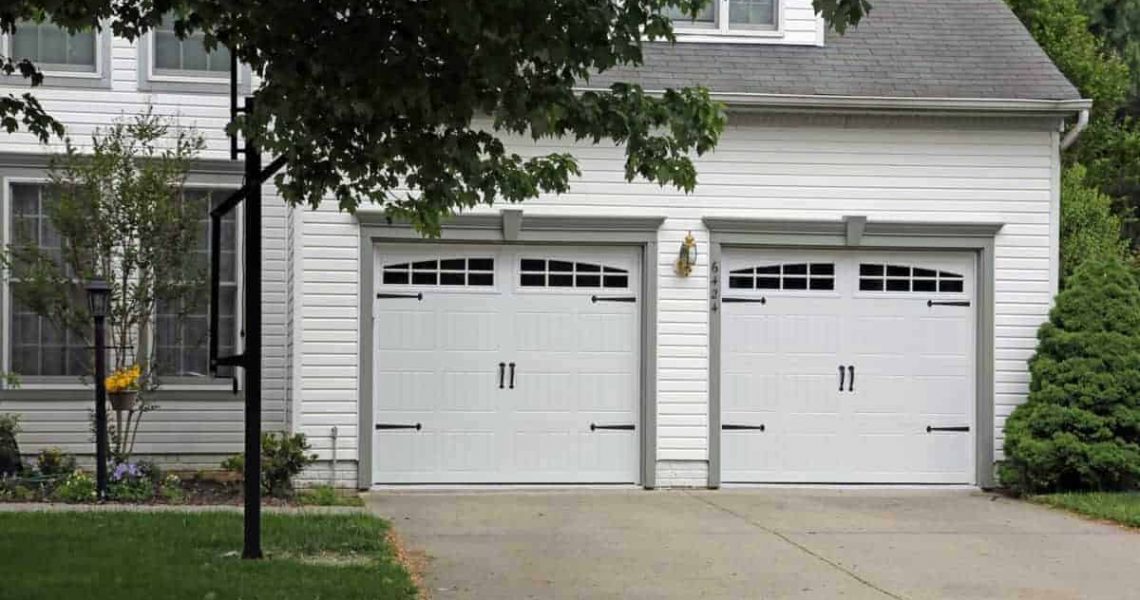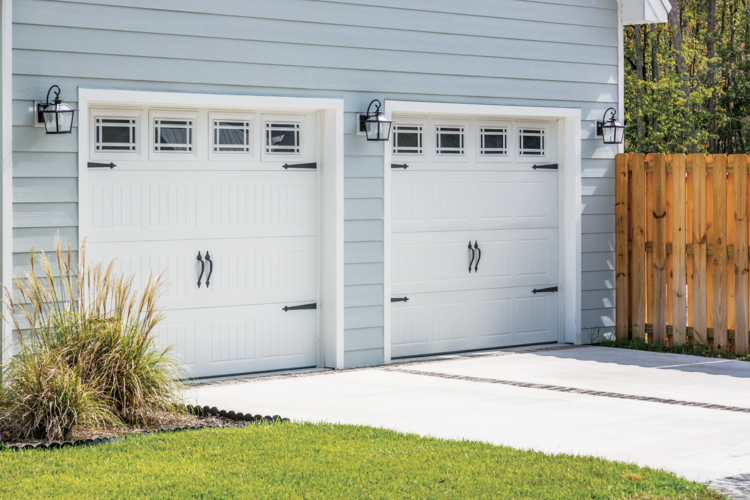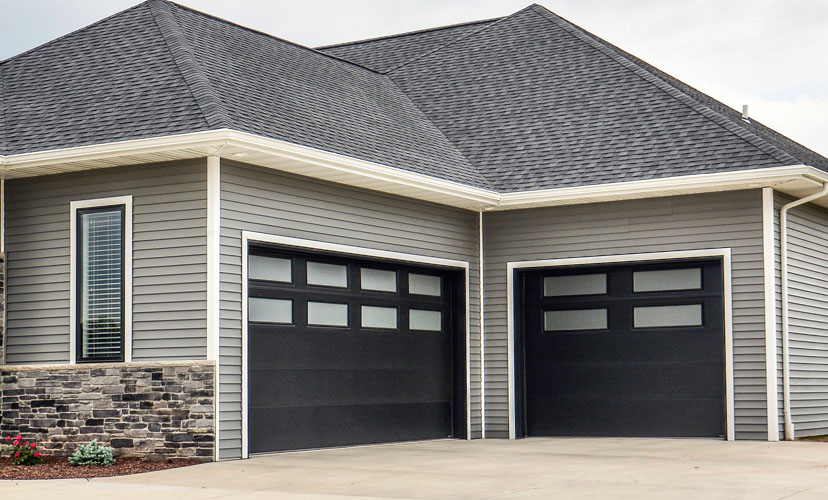When selecting a garage door, choosing between an insulated or non-insulated option can significantly impact the energy efficiency and comfort level of the garage. We have curated this article so you can explore the differences between insulated and non-insulated garage doors, including their pros and cons and factors to consider while installing one. By the end of this guide, you’ll better understand which type of garage door is best suited for your needs.
Understanding the Basics: Insulated & Non-insulated Garage Doors

Insulated garage doors are designed to insulate the garage space. They are constructed using multiple layers of materials, including foam insulation, that helps trap air and keeps the garage warm in the winter and cool in the summer. The insulation used in such garage doors can be made from various materials, such as fiberglass, polystyrene, or polyurethane, which provide different insulation levels.
Insulated garage doors are beneficial for those who use their garage as a workspace or living space. These can also be useful for those who live in regions with extreme temperatures. The added insulation helps reduce energy costs, improve comfort levels, and reduce noise pollution.
Non-insulated garage doors are generic garage doors that do not have any particular insulation materials added to them. They are typically made from a single layer of material, such as steel or wood, and do not provide the same level of insulation as insulated garage doors. Non-insulated garage doors are suitable for garages that are not used frequently or are not in regions with extreme temperatures.
These doors are generally less expensive than insulated garage doors and are easy to install, making them a popular choice for those on a budget. However, these doors do not provide the same energy efficiency, noise reduction, and durability as insulated garage doors.
If you need a detailed comparison between insulated and non-insulated garage doors, our next section will help you understand.
Insulated vs. Non-Insulated Garage Doors: Comparison

Insulated garage doors are more energy efficient, reduce noise, and maintain temperature control. However, they come at a higher cost and require minimal maintenance. Non-insulated garage doors, on the other hand, are less expensive but have poor energy efficiency, increased noise, and uncontrolled temperature. They are also less durable and require high maintenance.
In terms of aesthetics, insulated garage doors offer a more attractive appearance, while non-insulated doors look basic. Comfort is also higher with insulated garage doors compared to non-insulated ones. Ultimately, the choice between insulated and non-insulated garage doors depends on personal preference and budget.
The table below will help you compare and understand the difference at a glance:
| Features | Insulated Garage Doors | Non-Insulated Garage Doors |
| Energy Efficiency | Improved | Poor |
| Noise Reduction | Reduced | Increased |
| Temperature Control | Maintained | Uncontrolled |
| Cost | Higher | Lower |
| Durability | Long-lasting | Short-lived |
| Maintenance | Minimal | High |
| Aesthetics | Attractive | Basic |
| Comfort | Comfortable | Uncomfortable |
Factors To Consider When Choosing Between Insulated & Non-Insulated Garage Doors
Whenever the topic of insulated vs. non-insulated garage doors comes up, many fail to look at the bigger picture. There are several factors to consider before buying garage doors.
Firstly, consider the climate in your region and the insulation level required to maintain a comfortable temperature in your garage. Insulated garage doors are best for areas with extreme temperatures, as they help regulate the temperature inside the garage. Non-insulated garage doors are a suitable choice for standard temperatures.
Secondly, consider the level of noise reduction you need. Insulated garage doors reduce noise from the outside, making them ideal for homes near busy roads or noisy neighbors.
Thirdly, the garage doors’ costs and the long-term benefits of investing in an insulated door. While they are more expensive up front, more energy efficient, and require less maintenance, potentially saving you money in the long run. If you store non-expensive or old items in the garage, non-insulated doors will do the job. You can also opt for a home warranty that covers garage doors. It will cover the repair and replacement of door components and help you save on maintenance.
Note: Home warranties do not cover the entire garage door, but they do cover the majority of its components.
Finally, consider the durability and maintenance requirements of the doors. Insulated doors are more durable and require less maintenance, making them a better option in the long run.
Conclusion
In conclusion, insulated and non-insulated garage doors have advantages and disadvantages. When choosing between the two, it is crucial to consider the climate, noise reduction, cost, durability, maintenance requirements, upfront cost, etc. Ultimately, the choice between the two types will depend on individual preferences and budgets.






